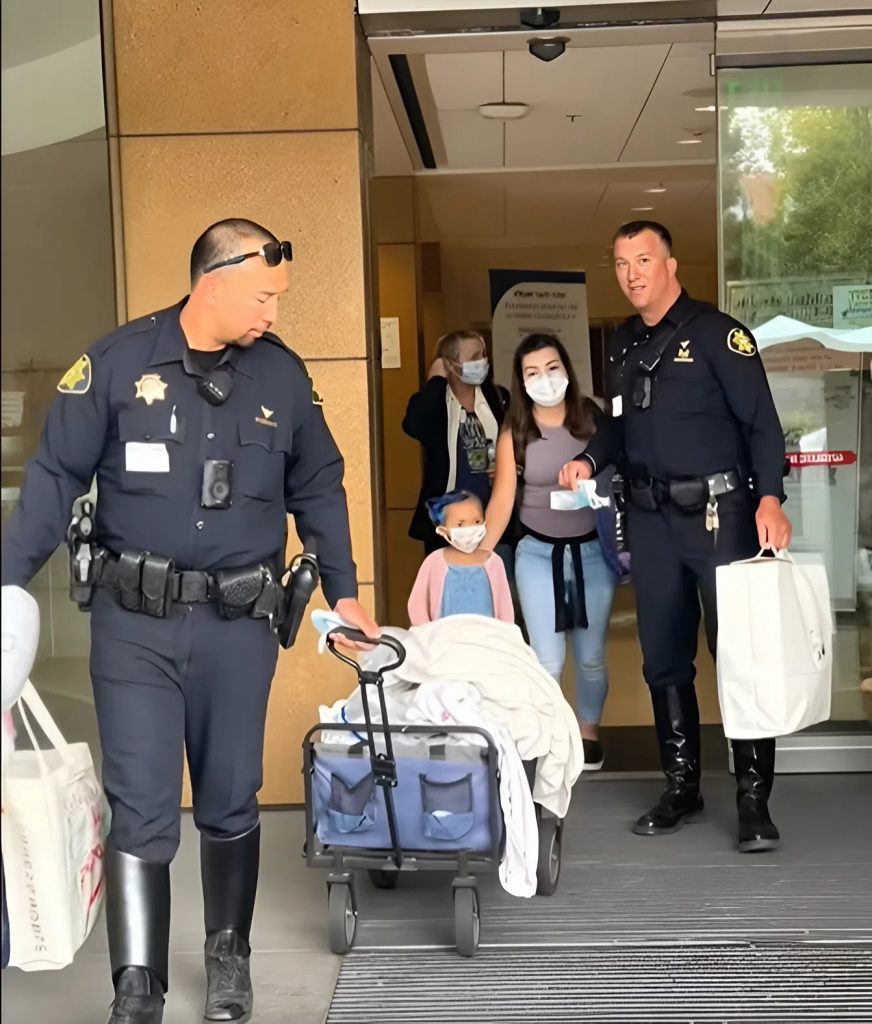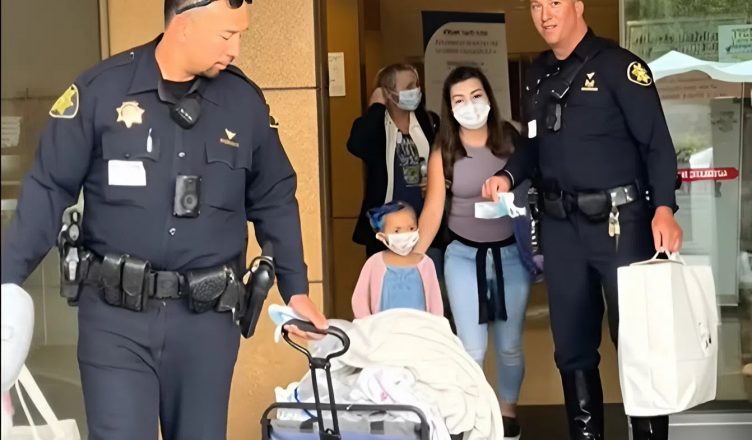When the doctors finally told me my daughter was ready to be discharged, I should have felt relief. Joy. Something like closure.
But what I felt instead was a hollow, gnawing silence inside me. Like something vital had been ripped out and replaced with cold air.
My daughter, Leah, was smiling under her little surgical mask, clutching her worn-out stuffed rabbit and waving at every nurse she saw in the hallway. She looked so full of life.
She didn’t know.
She didn’t know we had no home to return to.
We had been living in the hospital for four months. Day and night, I was there — sleeping on a stiff cot beside her IVs, eating leftover crackers from the nurse’s lounge, pretending every day that I had a plan.
Her father had left during the first week. One morning he said he was “going to grab coffee” and never came back.
My employer had “understood” at first — then stopped calling. I stopped trying.
I’d kept up the rent as long as I could. But then came the impossible choices: rent or medicine? Food or data for work?
At some point, I stopped thinking about what would come next. We were fighting for her life. That was all that mattered.
But now «next» had arrived.
Discharge was fast.
A few signatures. Some tight-lipped smiles.
A nurse patted my arm and whispered, “You’re stronger than you think.”
We walked toward the lobby.
Leah bounced beside me, asking if we’d get ice cream on the way home. She had no idea that we didn’t have a home anymore. The landlord had changed the locks weeks ago. His last message: “Leave the keys with the neighbor. I’m done.”
I didn’t tell her any of that.
She begged to stop by the hospital gift shop. I almost said no — but then I looked at her. At the girl who held still for spinal taps and didn’t cry when her hair fell out.
So we went in.
I chose the cheapest doll I could find. My wallet held a few coins and an expired card. The cashier didn’t say a word, but I felt his eyes.
We walked back into the lobby — and that’s when I saw them.
Two police officers, standing by the front desk, holding a piece of paper. One of them looked up and locked eyes with me.
He started walking toward us.

“Are you Elena J…?”
I nodded, my heart in my throat, my hand clamped around Leah’s so tight she winced.
“We need you to come with us,” he said gently.
My stomach flipped.
“I just got out with my daughter… We’re not in trouble, are we?”
“That’s not it,” the second officer said quietly. “We received a report from the hospital social worker. You’ve been classified as homeless. There are protocols.”
And just like that, I felt myself break inside.
We didn’t go to the station.
They drove us — kindly, gently — to a women’s shelter across town. A clean, gray building with no sign. One door. One buzzer.
Inside, a soft-voiced woman handed me paperwork and a room key.
One room. One bed. One drawer. A plastic cup by the sink.
That was our “new beginning.”
I cried in the shower that night.
Not from shame — I’d lost that long ago — but from the bone-deep exhaustion that no sleep could fix.
Three weeks later, we’re still here.
I’ve applied for temporary aid. I’m making calls. Selling a few things online. The job market doesn’t care if you’re desperate — and desperation doesn’t pay for bus fare.
Leah is adjusting in ways that make my heart ache.
She draws houses now. Always with pink roofs and two windows. There’s always a rabbit in the window.
Sometimes I catch her tucking away snacks “just in case.”
Sometimes she tells other kids we’re “just visiting some friends.”
She doesn’t ask why we don’t go back.
I think she knows.
Still, I smile. I fight. I fill out forms. I show up.
Because I am her mother.
Because when everything else is gone, I am what remains.
And maybe — just maybe — that’s what home really is. Not walls. Not furniture. But hands that hold you when everything else falls apart.
So no — this wasn’t the homecoming I imagined.
There were no balloons. No hugs from neighbors.
Just cold air, blank stares, and a shelter key.
But I have her.
And for now, that’s enough to keep going.
One more day.
One more battle.
One more step toward something better.
Because when the world shuts every door, sometimes the only way through is to build your own — even if you have to do it with empty hands.
